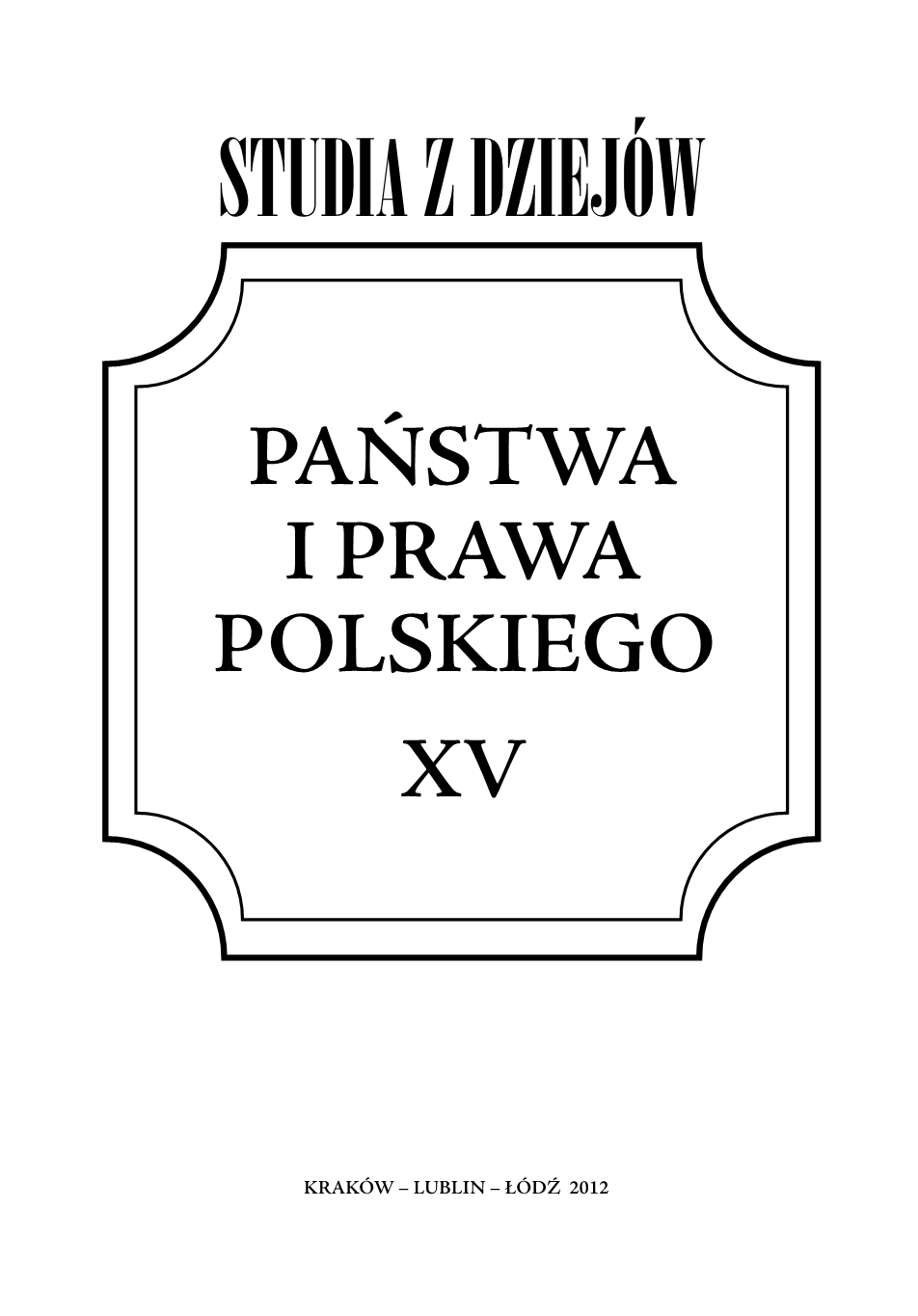Doradca i opiekun przydany w świetle Kodeksu Cywilnego Królestwa Polskiego – podobieństwa i różnice
Advisor and Awarded Guardian in the light of the Civil Code of the Kingdom of Poland – similarities and diff erences
Author(s): Justyna Bieda, Joanna Machut-KowalczykSubject(s): History of Law, Civil Law, 19th Century
Published by: Oficyna Wydawnicza AFM Uniwersytetu Andrzeja Frycza Modrzewskiego w Krakowie
Keywords: Kingdom of Poland; civil code
Summary/Abstract: The study presents two institutions envisaged in the Civil Code of the Kingdom of Poland (KCKP) that as yet remain hardly known: opiekun przydany (nominated guardian) and doradca (advisor). Both the functions aimed at the protection of personal and property interest of a minor in case of death of one or both parents. Although both were there to protect the interest of the juvenile person, the legislator awarded them different rights in the scope, and the functions were mistaken in practice. This is attested by the documents of the Justice of Peace Court of the County of Łęczyca (1809–1856), the Justice of Peace Court in Łódź (1844–1876) and the files of notaries public of the city of Zgierz, collected in the State Archive in Łódź. The lack of complete differentiation between the two functions was visible already in the interchangeability of the terminology used in reference to both the institutions. Although naming the opiekun przydany, the term from the code was used in most cases, we find also the terms podopiekun and współopiekun (i.e. “sub-guardian” and “co-guardian”). The question of the advisor was different. The term set up on the power of the Art. 350 of the KCKP was not used at all. What was used in its stead were terms tantamount to opiekun przydany: the term that we encounter most often. Moreover, the source materials include also the aforementioned words – podopiekun and współopiekun – clearly referring to the advisor. In testaments, public advisors were entrusted with tasks going far beyond the advisory functions, and even the nominated guardians were appointed against the law. The most probable reason for such a status quo was the poor knowledge of the rules of law by the people drawing up testaments. Moreover – believing themselves under the obligation of the best protection of the child’s interest – the people performing dispositions in the case of death, and referring to the future of their children – made efforts to apply the instruments used in practice in a manner understandable for them, unaware of circumventing law. Of parental care for the future of a child threatened with being orphaned, they surmised the moral right of nominating a guardian, according to their will. The more so as in great majority of cases family councils did not question the choices made by the testators. It could also be so that the testator realised that his decision concerning the appointment of the nominated guardian was legally null and void, and treated it only as a guideline for the family council.
Journal: Studia z Dziejów Państwa i Prawa
- Issue Year: XV/2012
- Issue No: 1
- Page Range: 87-95
- Page Count: 9
- Language: Polish

